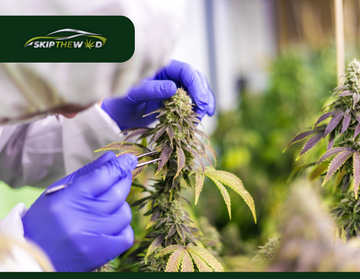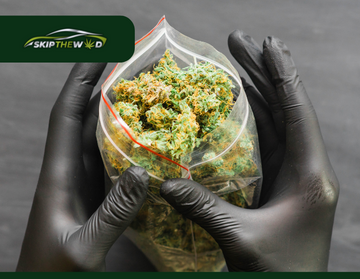The legalization of cannabis in Canada in 2018 opened up a new chapter in the country's approach to marijuana, shifting its status from illegal substance to a regulated product. However, despite its legal recreational and medicinal use, cannabis remains classified as a drug under Canadian law. This article explores the reasons why cannabis is considered a drug in Canada, its classification under different frameworks, and what this means for consumers, healthcare providers, and the legal system.
Cannabis as a Drug: Legal Definitions and Classifications
Cannabis is classified as a controlled substance under several frameworks, both globally and within Canada. These classifications guide its regulation and help the government control its production, sale, and use while minimizing the risks associated with its consumption.
1. The Controlled Drugs and Substances Act (CDSA)
Before its legalization in 2018, cannabis was listed as an illegal substance under Schedule II of the Controlled Drugs and Substances Act (CDSA). While the Cannabis Act (Bill C-45) removed cannabis from the CDSA for recreational purposes, it remains a controlled substance for medical use and in other contexts. Under this law, cannabis is still considered a drug, particularly when it is used outside of regulated frameworks (e.g., illegal production or sale).
Cannabis's drug classification under the CDSA allows the government to impose restrictions on its distribution and penalize those who violate these rules.
2. Health Canada's Definition of Cannabis
Health Canada, the government department responsible for public health, recognizes cannabis as a psychoactive drug. It defines cannabis as a plant that contains hundreds of chemical substances, including over 100 cannabinoids, the most notable being tetrahydrocannabinol (THC) and cannabidiol (CBD).
THC is the primary psychoactive component that produces the "high" sensation, which is why cannabis is considered a controlled substance. CBD, on the other hand, is non-psychoactive and is often used for therapeutic purposes. Despite this distinction, both THC and CBD are regulated as drugs in Canada.
Under Canada's Food and Drugs Act, cannabinoids such as THC and CBD are subject to the same regulations as pharmaceutical products, meaning they require specific standards for safety, quality, and efficacy.
3. International Drug Control Conventions
Cannabis is also recognized as a drug under international law. Canada is a signatory to several international treaties, such as the Single Convention on Narcotic Drugs (1961), which places cannabis in the same category as drugs like morphine and opium. Even though Canada legalized cannabis for domestic use, it remains committed to the global framework for controlling the illicit drug trade. This international classification continues to influence how Canada manages cannabis-related issues on the world stage, such as imports, exports, and its interaction with other countries’ drug laws.
Why Is Cannabis Considered a Drug?
The reasons cannabis is considered a drug in Canada are grounded in its psychoactive properties and potential health impacts. Here are the primary factors behind this classification:
1. Psychoactive Effects
Cannabis contains cannabinoids that interact with the brain’s endocannabinoid system, producing various effects. THC, the primary psychoactive compound, alters mood, perception, and cognition, which is characteristic of drug-like behavior. The changes it induces in brain function are comparable to those seen with other drugs, leading to altered states of consciousness, feelings of euphoria, and, in some cases, short-term impairments in memory or coordination.
2. Health Risks
Although cannabis has therapeutic benefits, particularly in treating pain, anxiety, and certain medical conditions, it also carries potential risks. Long-term or excessive use of cannabis, especially those high in THC, can result in dependency, mental health issues, and respiratory problems when smoked. The health risks associated with misuse contribute to its classification as a controlled drug, similar to alcohol or prescription medications.
The potential for cannabis to lead to both physical and psychological dependence aligns it with other substances classified as drugs. Although it is less addictive than some other substances, heavy users can develop cannabis use disorder, a condition characterized by cravings and withdrawal symptoms when attempting to quit.
3. Medical Uses
For many years, cannabis has been known for its therapeutic benefits. In Canada, cannabis is prescribed for patients suffering from conditions like chronic pain, multiple sclerosis, epilepsy, and cancer. The active cannabinoids in cannabis, especially CBD, have therapeutic effects, such as anti-inflammatory and pain-relieving properties.
However, even in medical settings, cannabis is treated as a controlled drug. This ensures it is used responsibly, in the right dosages, and only when prescribed by healthcare professionals. Medical cannabis in Canada is regulated under the Access to Cannabis for Medical Purposes Regulations (ACMPR), which outlines how patients can legally obtain and use cannabis for health purposes.
How Cannabis Is Treated in the Legal System
Even though cannabis is legal, its classification as a drug means that it is still subject to a variety of legal regulations. Failure to comply with these laws can result in penalties similar to those associated with other drugs.
1. Possession and Distribution Laws
While individuals are permitted to possess up to 30 grams of dried cannabis in public, possessing more than the legal limit or selling cannabis without a license is considered a criminal offense. Under the Cannabis Act, illegal production, distribution, or sale of cannabis can result in serious penalties, including imprisonment.
Similarly, providing cannabis to minors is treated as a serious offense under Canadian law. The government aims to keep cannabis out of the hands of those under the legal age (18, 19, or 21, depending on the province).
2. Cannabis-Impaired Driving
In Canada, it is a criminal offense to drive while impaired by cannabis. Since cannabis affects the brain's coordination and reaction time, impaired driving laws treat cannabis in the same way as alcohol or other drugs. Federal legislation allows for roadside drug testing to determine cannabis impairment, and exceeding the legal limit of THC in your bloodstream can result in fines, driving suspensions, or even imprisonment.
Cannabis as a Drug in Healthcare
In addition to its recreational use, cannabis plays a significant role in healthcare in Canada. Patients with qualifying medical conditions can access cannabis for medicinal purposes under a doctor’s supervision. However, as with any drug, the use of medical cannabis must be carefully monitored to avoid dependency or misuse.
In this context, cannabis is treated like other prescription drugs, and patients are advised on dosage, potential side effects, and interactions with other medications.
The Stigma of Cannabis as a Drug
Despite legalization, cannabis continues to carry a certain stigma in some parts of Canada. This stigma largely stems from its previous classification as an illegal narcotic and its association with substance abuse. However, as more Canadians become aware of the potential benefits of cannabis and its legal status, this stigma is gradually diminishing. Education about responsible cannabis use and its medical applications is crucial in shifting public perception.
Conclusion
In Canada, cannabis is considered a drug due to its psychoactive effects, potential health risks, and medical applications. Even though it is legal for both recreational and medicinal use, cannabis remains a controlled substance, and its production, sale, and consumption are strictly regulated. It’s important for individuals to understand these regulations to enjoy cannabis responsibly and legally.
For those in Winnipeg looking for high-quality cannabis products, Skip the Weed proudly serves the area, including St. Norbert, LaSalle, and St. Adolph. We offer a broad selection of premium products, including high-quality flowers, potent concentrates, edibles, and more. Explore our online catalog to find the perfect product for your needs. Enjoy vehicle delivery for $9 or mail order for $20. To place your order, call us at 204-294-6583.








